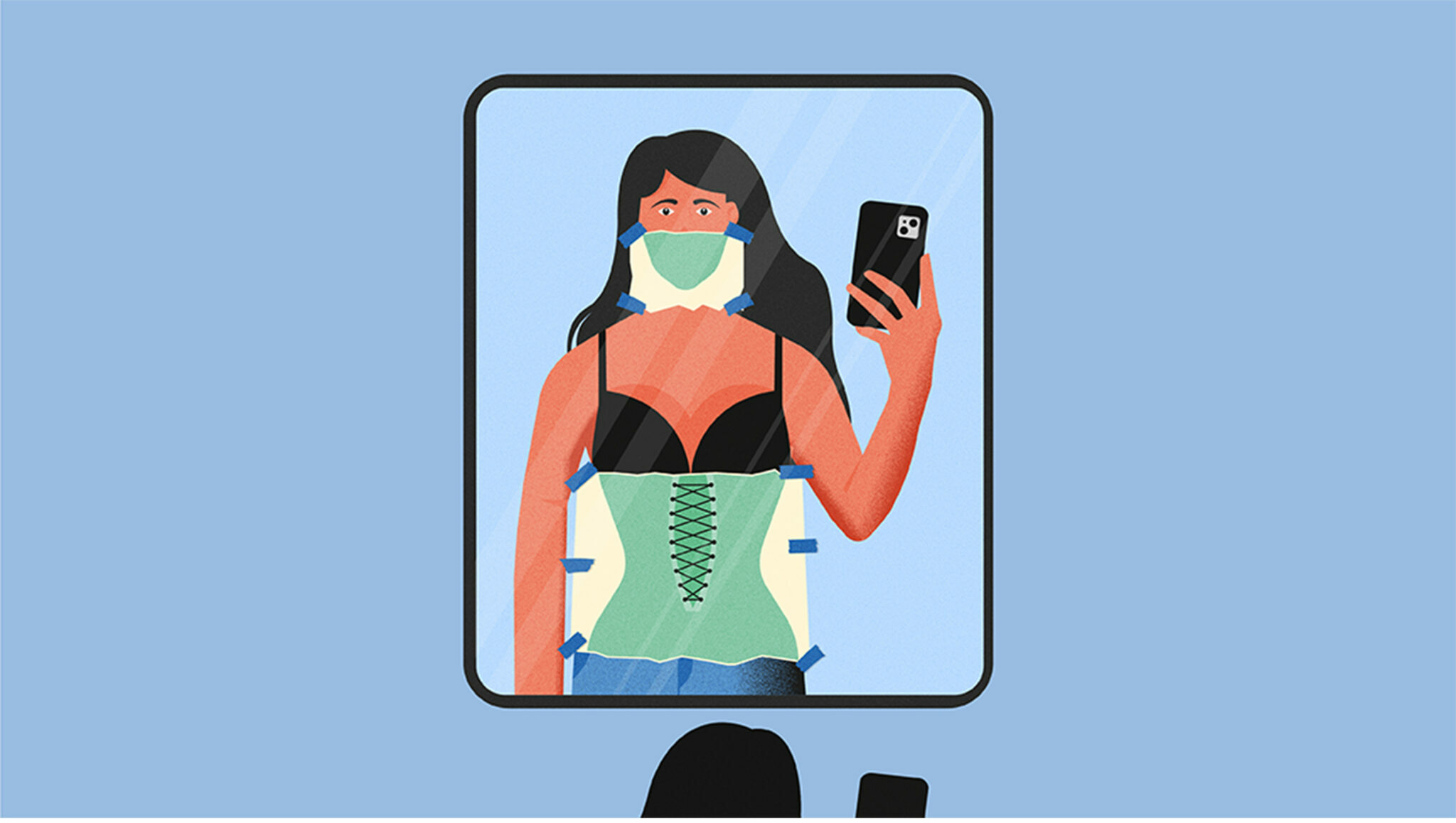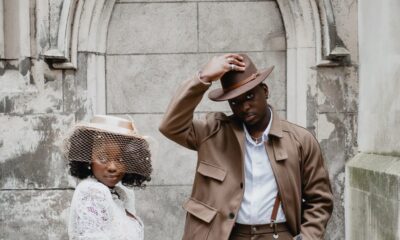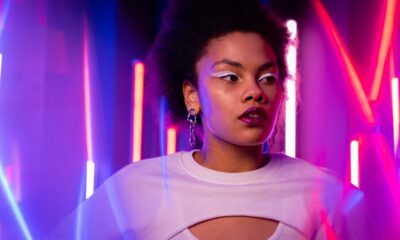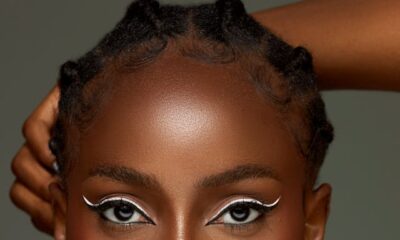Beauty
Pencilled Jaws & Corseted Waists; How Are We Redefining Beauty Standards?
Beauty standards change too rapidly – more than your body can catch up with.

Someone, in a TikTok video, has the perfect hack for wearing heels for over 6 hours without feeling the pain: spray lidocaine on your feet before wearing your pumps. This video, shared on Instagram, has thousands of likes and hundreds of comments with people thanking the poster for such “life-saving” tips and other (drowning-in-a-pool-of-very-loud-voices) comments warning against using lidocaine on your skin.
This video became so viral that doctors had to warn people about the danger the use of lidocaine is causing to the nerves on the feet. The doctors also warned that using lidocaine can “numb pain the receptors that let those wearing high heels know when their foot might be severely uncomfortable or has gotten blisters from the shoes.”
Lidocaine is not the only beauty hack that has gone viral recently. There’s a video of a woman putting adhesive to her helix and glueing her ears down so they won’t “poke out” in photos. And more beauty hacks, tips and advice.
The beauty industry has always sold perfection. The adverts are being shoved up your nose on Instagram, TikTok and other social media: “Get the perfect shape when you visit doctor Mullins,” “say no to black lips and embrace pinkness,” “are you not ashamed of that big belly, get rid of it with just one click,” “blast your belly in 2 days,” “snatch your waist with our snatcher belt” “Melt your fat in…” It is either that or celebrities are promoting what the ideal body shape should be, or Snapchat filters a lot of people can no longer do without.
Beauty standards mean every look has to be on fleek, and yes, even if it means going that extra mile. Extra mile could mean paying better attention to your skincare routines, exercising, going on a diet, making your hair and nails and so on. But like we see in recent times, it could also mean starving yourself to fit into a certain size, taking pills to get a certain skin colour, injections to make your lips look a certain way, Brazillian butts, surgeries, fillers, pencilling your jaws to make them look sharp or getting that corseted waist.
Beauty standards also influence fashion trends. Is there a Lagos wedding party without corset attires? From padded hips, corseted waists, and so on, the world is constantly reminded of how humans should look a certain way to be considered beautiful.
But ideas of what makes a perfect body, in the beauty industry, are quite transitory and are always changing with time. Today, having small butts makes you perfect, tomorrow, it could be having big butts. It could be hip dips and then, well-rounded hips. Thin people and then people with flesh. Coping with the rapidly evolving and consistently redefined beauty standard means the constant alteration of one’s body but with enough room for modification should in case the standard changes again, or the current look goes out of fashion.
Through fashion and beauty, we are redefining the way we look at ourselves and look at others. We’re determining, at times and seasons, what should and shouldn’t be. We are selling certain ideas of how people should look and when. There seems to be a sellability of almost-impossible beauty looks, a deliberate act to defy nature and age, and god-like admiration for people, especially women, who do not “look her age”. It is also raising a legion of plutocrats hell-bent on amassing wealth from people’s insecurities, by amplifying bodily imperfections under the pretext of solving problems.
Looking good is great business, but perhaps as we pencil our jaws, and get surgeries, we must begin to ask ourselves why. Who is selling these standards we think we must live by to us? Who is benefitting from this narrative? As Africans, it is important to ask ourselves why we are increasingly getting obsessed with symmetrical faces or eurocentric features, and if this is rooted in colonialism. When we make our jaws pointed, our nose bridges sharper, or our faces slimmer, is it because we want our looks to be appealing to the ‘western world’? Are we also, by our actions, amplifying unrealistic beauty standards, upholding eurocentric looks as the ideal beauty standard, and eclipsing Afrocentric looks? What makes us think that “looking our age” or having wrinkles as we grow is such a bad thing? Who gets to decide what ‘beautiful’ should mean?
The need to jump on beauty trends, get surgeries, or try beauty hacks may just be what they are: aiming to be more beautiful. But it is important to secure that they are not borne of deep insecurities, identity crisis, or the need to match up to a standard. Because standards are people’s opinions of what should or shouldn’t be. And opinions change too rapidly – more than your body can catch up with.





















